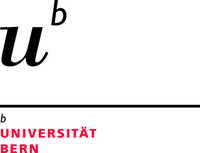– Workshops and new research tool demonstrations
Teach others your skills (e.g. in writing, GIS, or digital humanities) or offer mentorship or field-work tips.
– “Difficult conversations”
Presenters address sensitive issues within environmental history within a safe space. We use what we call Chatham House Rules 2.0: The discussion is not tweeted and remains within the confines of the room.
– “Flipping the panels”
Papers will be made available in advance as draft papers or even short video presentations. Rather than just summarise their paper, presenters come to the panel with questions they need answered to improve their research. Instead of just listening to presentations, audience members come with their own questions/suggestions. The panels become conversations between presenters and the audience in collaborative research efforts. This is also an inclusive way of extending the peer-review process.
– History Cafes
A facilitator provides a question on a predetermined topic or proposes a problem that needs solving. The group divides into smaller groups, discusses, and submits feedback for the larger group at the end. Conversation and participation are the key processes and collaborative projects are stimulated.
– PechaKucha presentations.
In this rapid “chit chat” format invented in Tokyo, speakers show 20 images, each for 20 seconds. The images advance automatically and speakers talk along with the images. It is like an “elevator pitch meets karaoke!”
– Soundclash debates
We import this idea from the music industry. Soundclashes normally occur when two different bands or DJs play against each other on either side of the stage. The conference encourages intellectual frisson by debating opposing points of view over contentious issues (methodology, theory, historiographical model) in environmental history.
– Book lounge
We encourage authors to offer a reading from their recent book. Also welcome are shared discussions of a single book, major paper, movie, or even primary source.
– The Historian in the Mirror
Reflective roundtables that examine our own academic practices, activism and ourselves.
Travel grants
A limited number of grants for ESEH members who would not be able to attend the conference without external support. These travel grants are intended for graduate students, independent scholars, and those from low-income countries. Applications for these grants will be made as part of the submission process.
Participants of the preceding ESEH Summer Schools on Commons and on Climate (both in alpine locations out of Bern) – see the additional call to be launched in September 2022 – will be fully reimbursed for their travel costs to Switzerland, but are not admitted to apply for another travel grant.
Submissions
Each person can be a primary presenter in only one session proposal, but can also serve as a chair/commentator in a second session proposal. In addition, a presenter of a Conventional Session can submit a proposal or participate in a «Different World» session as well. All submissions should include an abstract of about 250 words and at least three keywords. The conference language is English; no submissions in other languages will be accepted. All proposals will be reviewed by the ESEH Programme Committee. All proposals should be submitted through our online submission system (August to 31 October 2022).
No additional documents, such as CV, slides, the poster itself etc. are required for the submission.
The submission deadline is 31 October 2022.
Those who have secured a place on the programme will be advised of this by mid-January 2023.
Questions about proposals should be directed to the Chair of the Programme Committee, Dr. Wilko Graf von Hardenberg, through the email conference[ at ]eseh.org.

